Creators & Entrepreneurs
Here’s How to Start a Digital Business in 2025
If you're ready to start a digital business, let us show you the ropes.
Author
Mighty Team
Last Updated
February 6, 2025
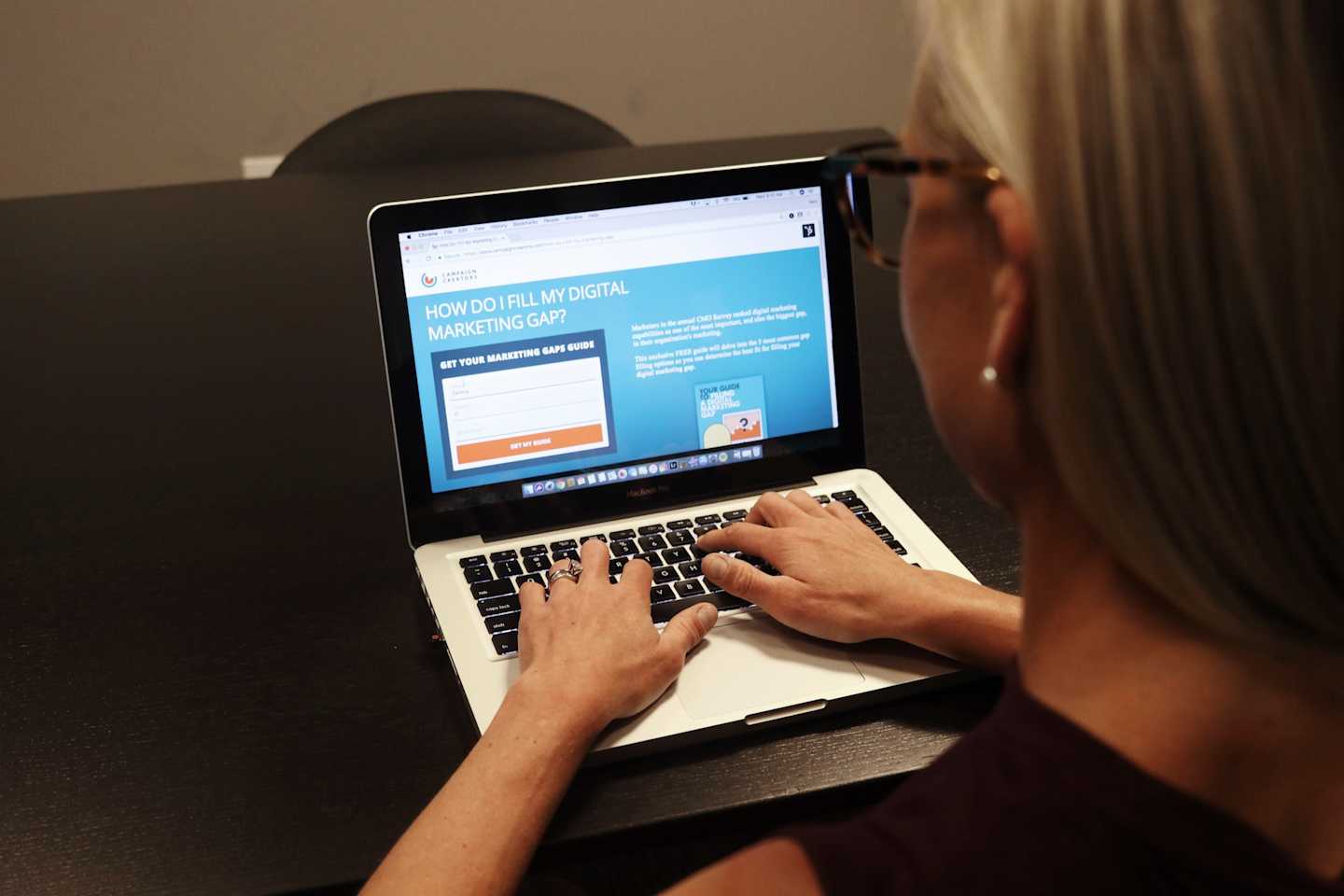
Whether you’re in an existing company or starting your own enterprise or side hustle, a digital business offers a ton of potential.
And even many legacy businesses that have traditionally been low tech are adopting digital. We’re seeing everything from 89% of corporate directors pointing to digital as a significant part of their digital growth strategies to influencers and creators building 6, 7, and even 8-figure digital businesses.
In this article, we'll introduce you to the concept of digital business, and give you a full guide on how to start a digital business.
What is a digital business?
A digital business is any business that uses digital technology to find and serve customers and make sales, even if part of that transaction involves a “real-world” offer. For example, Uber can be considered a digital business because its platform, customer acquisition, and transaction structures are all digital–even if the service is physical.
Digital businesses come in all shapes and sizes, as pretty much any business model can now be digitized. You might think of things like SaaS companies, social media, an e-commerce store, or your favorite app - all of these are digital businesses to some extent.
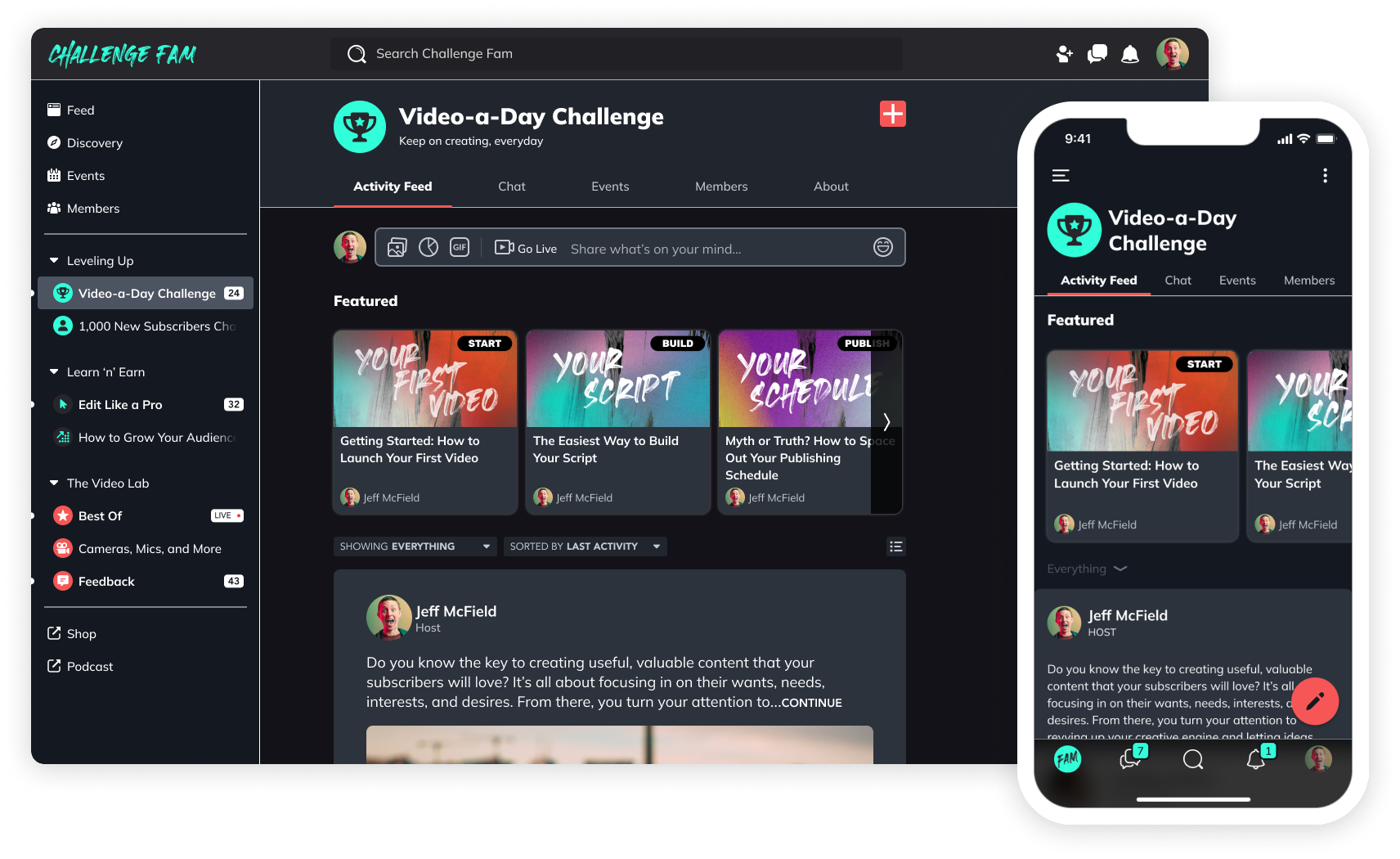
But part of the problem with classifying “digital business” is that we are seeing so much digital adoption in pretty much every type of business. This means that most businesses have some component of a digital business, even your local fashion retailer that sells on their website could be considered a partially digital business.
For all these reasons, this guide to digital businesses will have to cover a lot of ground. Because when we talk about digital businesses, we could be talking about very different things.
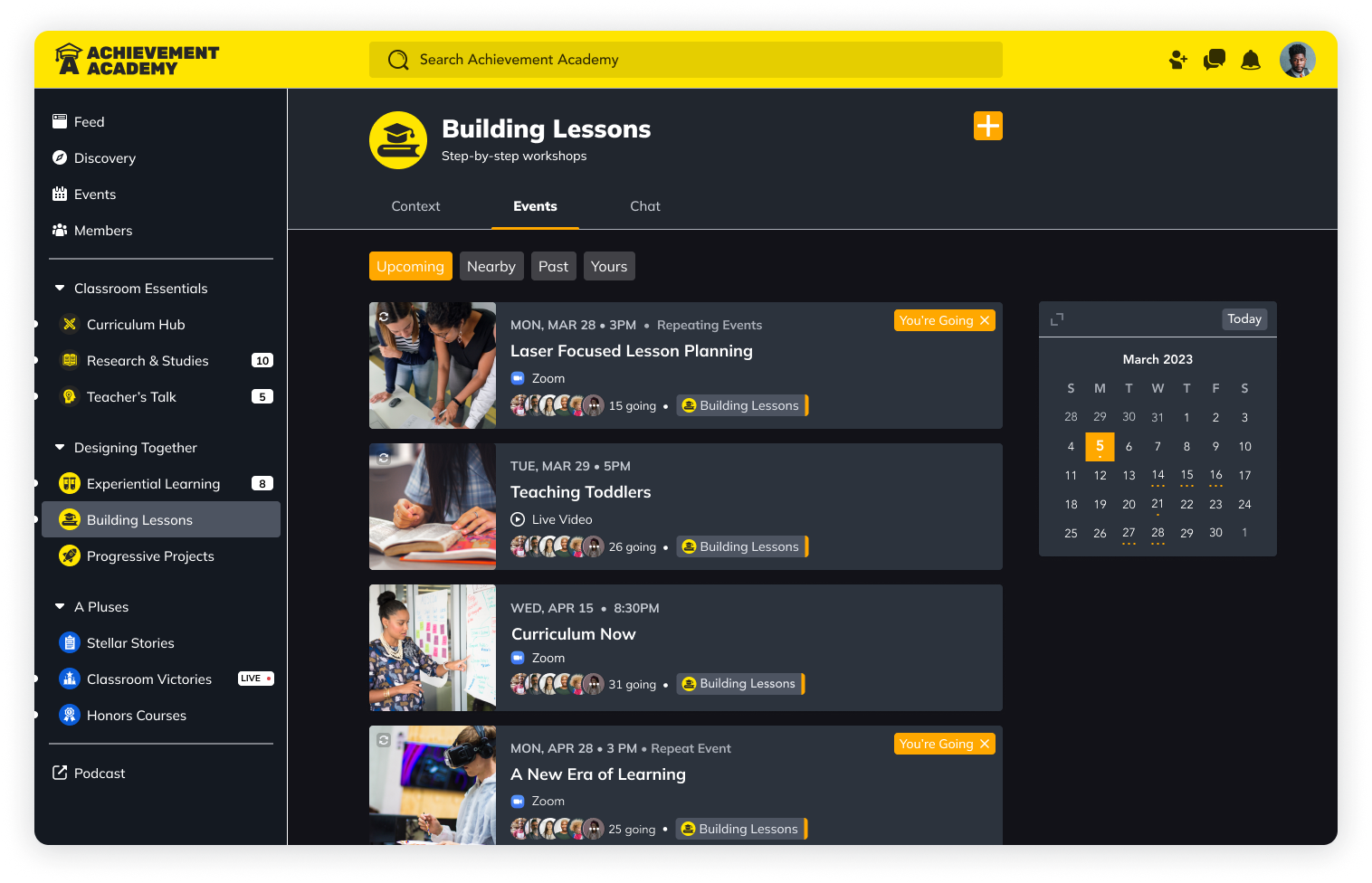
For the purpose of this article, we’ll focus mostly on two types of digital businesses:
Physical products or services sold digitally (e.g. an e-commerce business like Amazon, a service platform like Uber)
Digital products or services that are created and sold digitally (a Netflix membership, a Skillshare course)
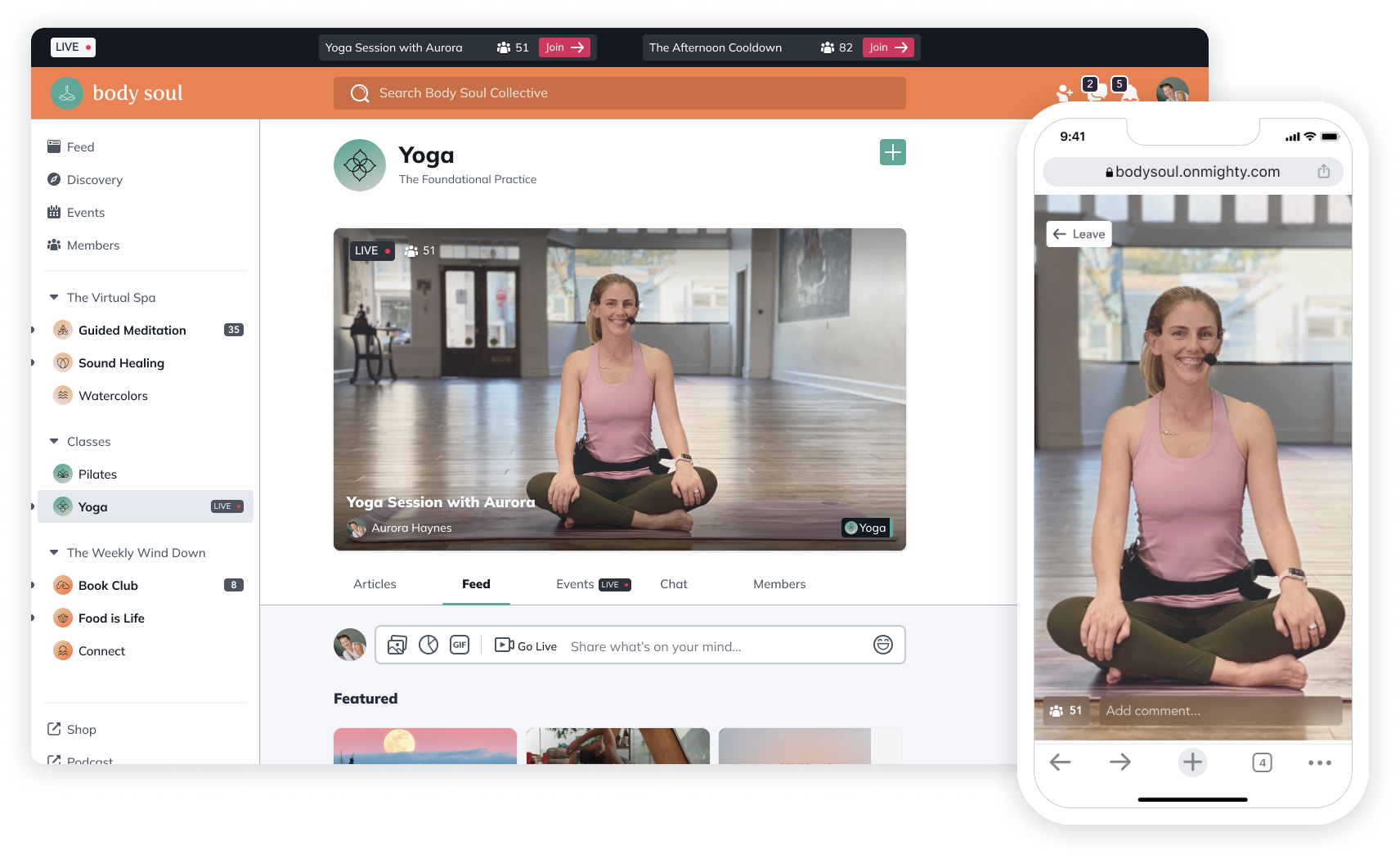
Advantages of digital business
Digital infrastructure allows enormous scale.
Digital businesses often have high profit margins.
More tech solutions exist now, which makes it easier than ever to start.
More digital services and support means you can often run a digital business with outsourcing and contracting.
How digital businesses generate revenue
These are some (certainly not all) of the most common ways that digital businesses can make money.
Ad revenue: Attention is monetized with relevant ads. For example, YouTube generated over $28 billion in ad revenue in 2022.
Direct sales: A product or service (digital or physical) is sold directly to customers. Amazon generated $220 billion from online store sales in 2022.
Memberships: Customers pay a monthly fee to access services or content. For example, Netflix is a $31 billion/year membership business.
Affiliate marketing: Some digital businesses (e.g. blogs, influencers) earn from affiliate marketing–making a commission off of sales of a product or service.
Fan support: Hard to say if it’s a business model, but platforms like Patreon let creators monetize their fans.
Freemium: Freemium products or services give a low-level away for free and charge users to upgrade.
Licensing: It’s a bit more complicated to understand than the others on this list, but some companies create digital IP or data sets and license them out to others.
How to start a digital business
While it’s tough to create a one-size fits all guide to creating a digital business, pretty much every digital business will have to go through similar steps. Here are some of the common ones.
1. Do the background work
Any business usually starts with an idea. A dream. A sketch on the back of the napkin.
You've probably heard the story.
The first step to starting your business will always be an idea. Maybe it's a question. For example, the founder of Instagram famously asked, "What would happen if people could share pictures with filters on them?"
Often business ideas are based on needs that you have had or experienced.
Or maybe you just have a good eye for an opportunity. Whatever your business idea is, it's always the first step.
Maybe you already have an idea. Which is great. Skip to the next step. If not, here are a few things to help you think about it.
Your domain
Often successful businesses are built by people who know a certain industry or field. For example, Mark Benioff, founder of Salesforce, famously worked for 14 years at Oracle and saw the need for a better CRM.
Here on Mighty, we often see people building thriving businesses around things they know about. These are people like Ryder Carrol, whose approach to bullet journaling launched a movement, a book, courses, and the community around visual note-taking.
Start by taking stock of the things you know about. The fields you understand. The problem areas you are clear about.
Whether it's building a better travel app or helping people get in shape, a lot of successful businesses are built by people who understand something.
If you have an idea in a field you don't know much about, it's not to say it can't work. But you've got your work cut out for you. Lay the groundwork first and make sure the idea actually has legs.
Your skillset
As a business owner, you will bring a set of skills to the table. And although you can obviously hire for your weaknesses, and probably should, starting from your strengths is a great way to build a business.
If you don't like public speaking but love writing, you probably won't start a YouTube channel. If you don't know the first thing about coding, you probably want to use an existing platform. Lead your digital business from your strengths.
Your passion
It may be a cliche at this point, but businesses that align with some passion you have seem to do better.
While there are business owners who launch thriving businesses by simply calculating opportunity, many business owners feel a special pull to a certain area.
Is this you? Pay attention to where your passion lies.
Whether you mine your passion, your skills, your domain knowledge, or all three for your business ideas, this is usually the first step. Spend some time dreaming, even coming up with big hairy audacious goals, and lay the groundwork for your digital business.
2. Find your ideal customer
The next thing your business needs is a customer. "Wait!" you might be saying. "Don't I need a product or service first?"
Some people have a vision for a product and just dive in. And this approach can work.
But if you're starting your digital business from scratch, it can be a great practice to go find an ideal customer.
Who is the person you plan to serve with your knowledge, skills, and passion?
What problems will you help them solve?
And at this stage, there's nothing quite like a little hands-on research. Talk to 20 or 30 potential customers and ask them questions like:
What problems do you have with X?
What struggles do you find accomplishing X on your own?
What kind of products are you searching for to help you with your problems?
What would a product need to do to solve your problem?
These kinds of open-ended questions can help you unlock opportunities before even building a product.
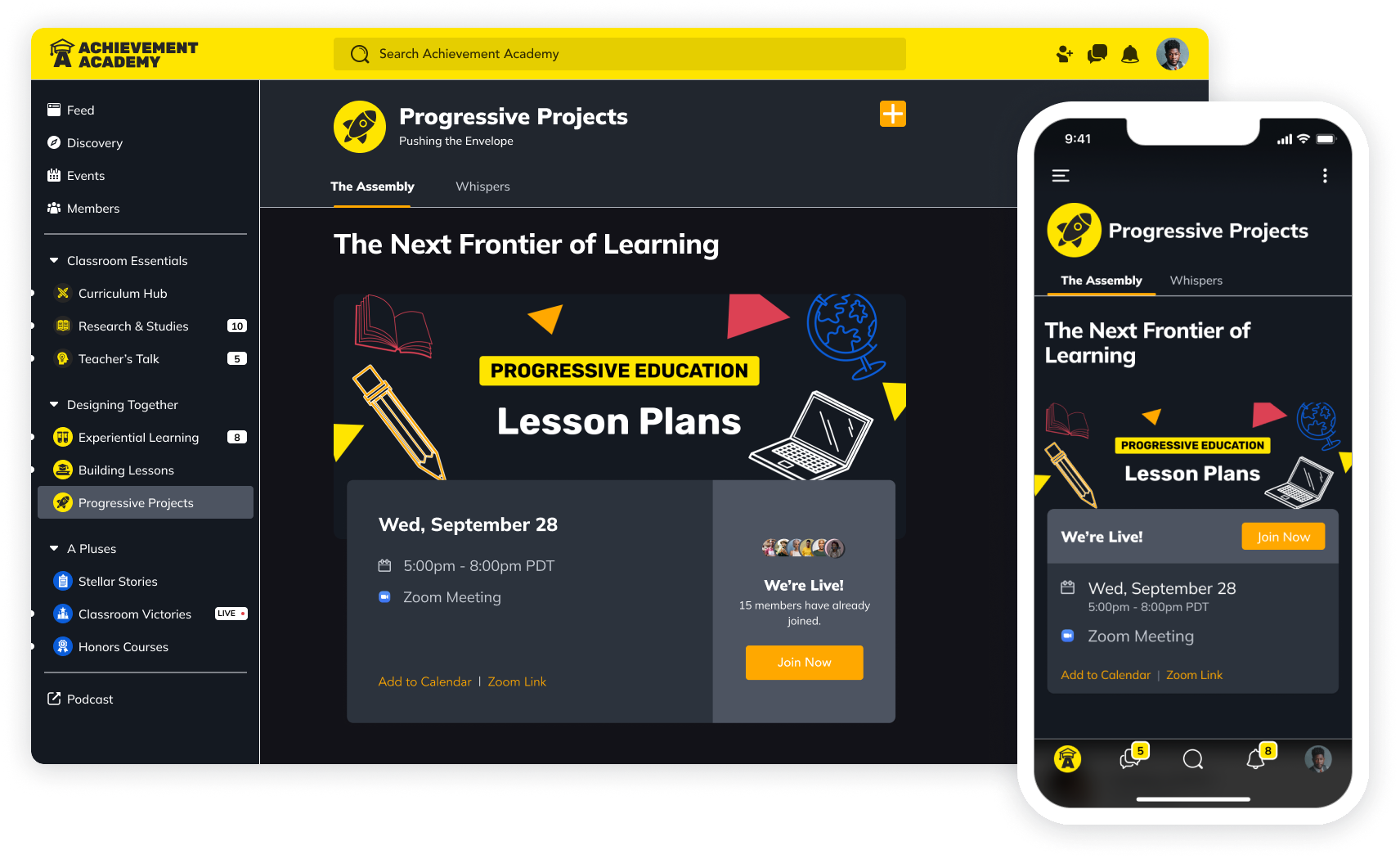
3. Ideate a product or service
Once you start to understand what your ideal customers need and want, you're way better positioned to create a product or service to match.
Spend some time ideating products or services to offer your ideal customers.
For example, if you interviewed people who want to be in better shape and found that they struggle with the motivation and understanding to work out, what types of products could you create to help them?
Here are a few ideas:
An online community full of people like them cheering them on
A course to teach them about the fundamentals of exercise
1:1 coaching to keep them on track
An ebook or physical book that introduces them to a new type of exercise you've developed
A subscription to an app with custom workouts
There's more than one solution for most problems. You can start to come up with ideas, and test them out on your ideal customers. See if they find them interesting or what objections they have.
Once you’ve figured out your digital product, check out our Business Name Generator to create a business name that feels like magic.
4. Figure out business requirements
Just like a local bricks and mortar business, digital businesses have to follow business requirements too. You'll need to understand how to make sales, collect relevant taxes, and report to the government. You may need to figure out how to invoice, or how to claim your taxes at year-end.
And of course, you need to figure out how to take money out of your business!
So this is your homework. Stop in at a local business center or do some research online to figure out the requirements to start a business in your state. Often it's not very difficult.
Keeping on the right side of the law with your digital business–not to mention the right side of the tax code–makes it more likely you'll succeed.
And don't worry. Many business owners find this part of the learning curve, but you can and will get better as you go. You got this!
5. Choose your tech
Tech is an essential part of every digital business, but which tech solutions you need will depend a lot on your business model.
For example, if you are selling stuff from your garage on Amazon you might only need an Amazon account and your phone. If you were to drop shipping on Amazon, you probably need to figure out how to connect a drop shipping platform to your Amazon store.
Whatever your business does, any digital business has some tech involved. Here are some of the common tech pieces in a digital business.
Platforms A lot of digital businesses run on platforms. A platform usually gives you a lot of the infrastructure you need, making it much easier to run your digital business than if you were trying to start everything from scratch.
Honestly, many digital businesses will find that having the right platform gives them everything they need to run a digital business.
Here are some of the common types of platforms for digital businesses:
E-commerce platform: Create and/or sell products (e.g. Amazon, Shopify)
Online course platform: Create and sell an online course (e.g. Mighty Networks, Kajabi)
Online community platform: Monetize an online membership or subscription community (e.g. Mighty Networks)
Marketplace platform: List stuff for sale (e.g. Facebook Marketplace, Ebay)
Influencer marketing platform: Find partnerships to monetize your following (e.g. Influenster, Impact Radius)
Freelancer platform: Find clients to work for (e.g. Upwork, Flexjobs)
Online service platform: Offer all sorts of services (e.g. Betterhelp)
App creation platform: Create an app under your own brand (e.g. Mighty Pro)
Virtual event platform: Create, monetize, and host a virtual event
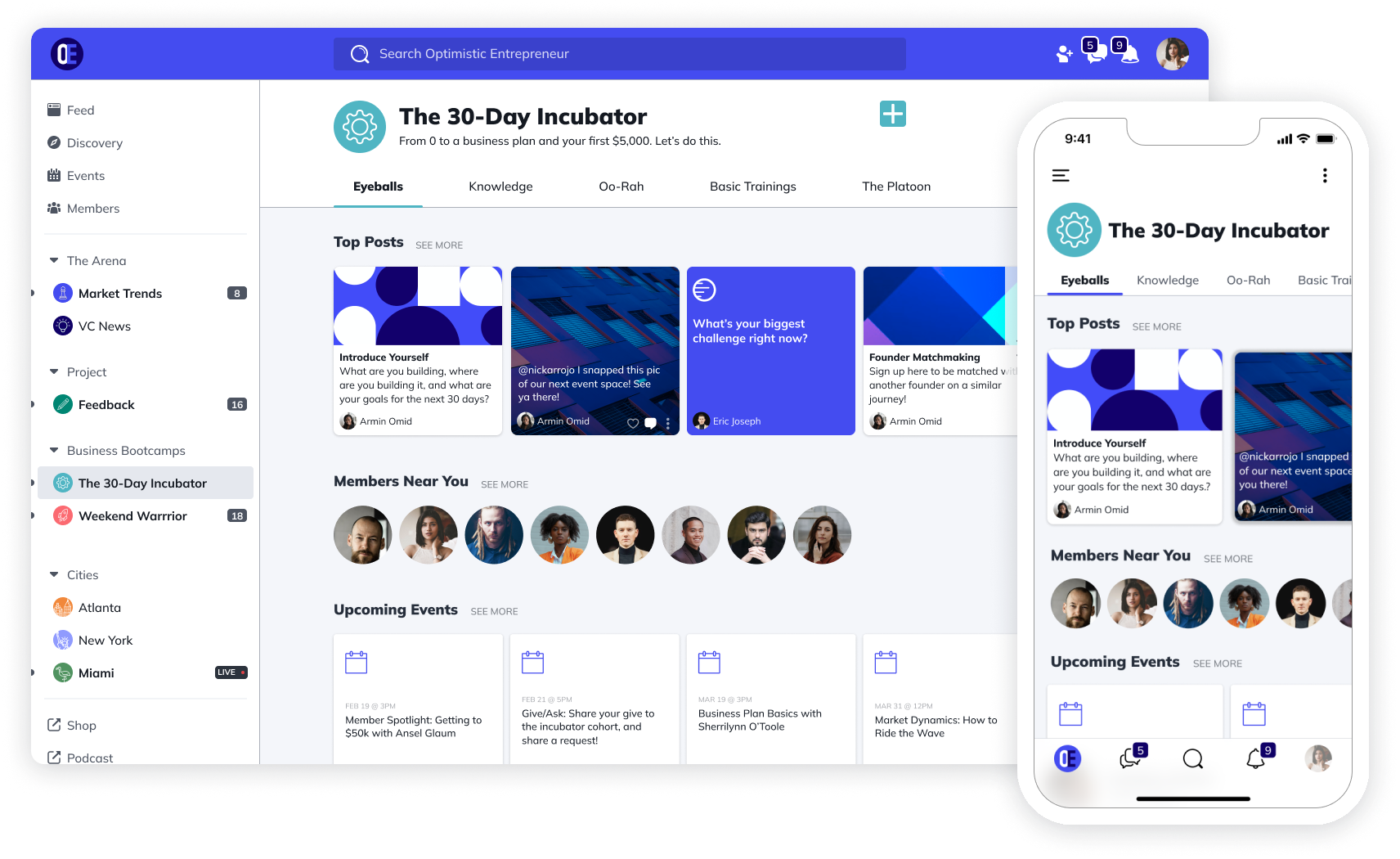
Websites For many digital businesses (not all) a website is part of the plan. Websites are a great idea for local businesses, or product or service-based businesses growing their marketing footprint–especially if you want search engine traffic.
Social media
Social-media platforms are often part of a digital business model as you think about customer acquisition–primarily marketing and outreach. But some digital businesses will be built entirely on social media. This is true of influencer businesses, but we’re also seeing more and more e-commerce and membership software merging into social media platforms (for example, social commerceon Facebook).
Business management software
A lot of digital businesses will use different types of business management software. These are often SaaS companies that give you the tools you need to support your main business–things like operations or marketing.
Here are some examples of common business management software that digital businesses use:
Customer relationship management software: e.g. Salesforce, HubSpot
Bookkeeping software: e.g. Quickbooks, Freshbooks
Email marketing software: e.g. ConvertKit, MailChimp
Social media management: e.g. Hootsuite
Apps
Some digital businesses are built completely on apps. While we won’t devote much time to apps for digital business in this post, you can read more about creating your own business app here.
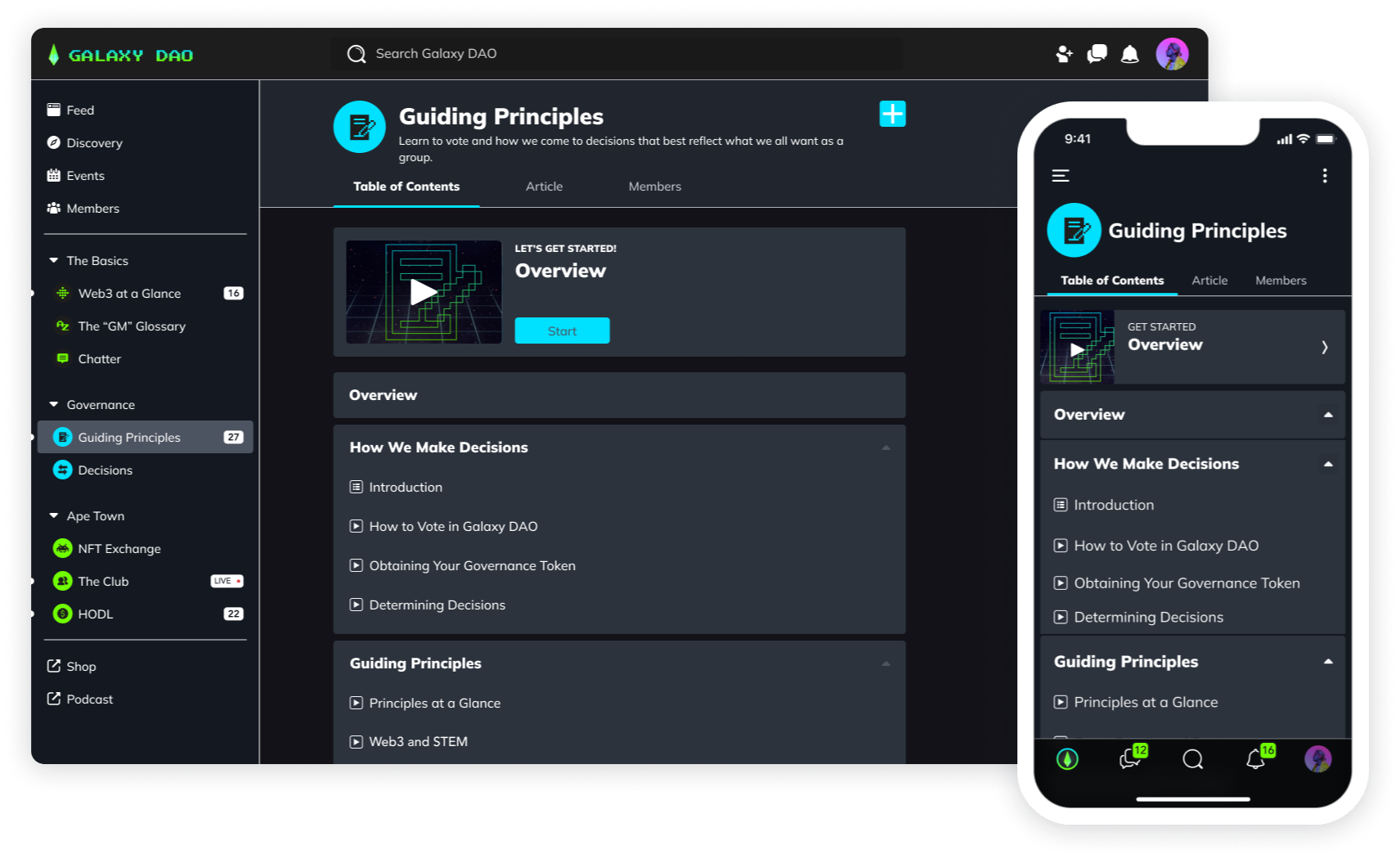
6. Sell something
It might sound counterintuitive, but for many digital businesses the next step should be to sell something.
For example, if you are building a digital e-learning business, it's tempting to spend a lot of time building your first course. But we found that nothing validates quite like a sale.
Why not try a cohort course instead? You could sell a course before you deliver it live, giving you an instant way to validate your idea.
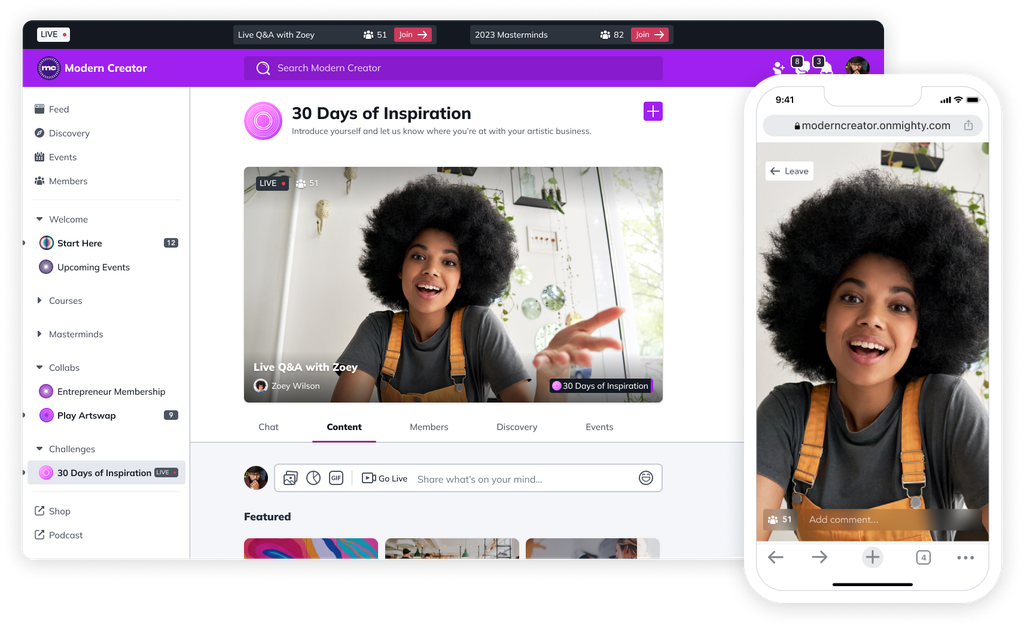
7. Build your product
If you’re confident that you will be able to make sales in your digital business, build the product or service. Create your offering, choose your tech, and focus on creating the best product or service you possibly can.
When you have a really great product or service, you're poised to grow via word of mouth and you'll be able to collect those valuable testimonials to tell potential new customers how great your product or services are.
8. Clarify customer acquisition
Okay, so you've made your first sales. What's next?
Often, the answer is: make it better. Take a look at where your customers are coming from and learn how to strengthen your customer acquisition. In many cases, you can forget about the channels that aren't working and focus on what is.
For example, if you realize that your social media ads are doing nothing but that people are finding your website because of Google searches, you might want to double down on SEO. If some of your paid ads are working and some aren't, study the ones that work to see if you can figure out what's making them successful. Replicate it.
All this work is establishing your business, not just as a flash in the pan, but as a digital business that will stand the test of time.
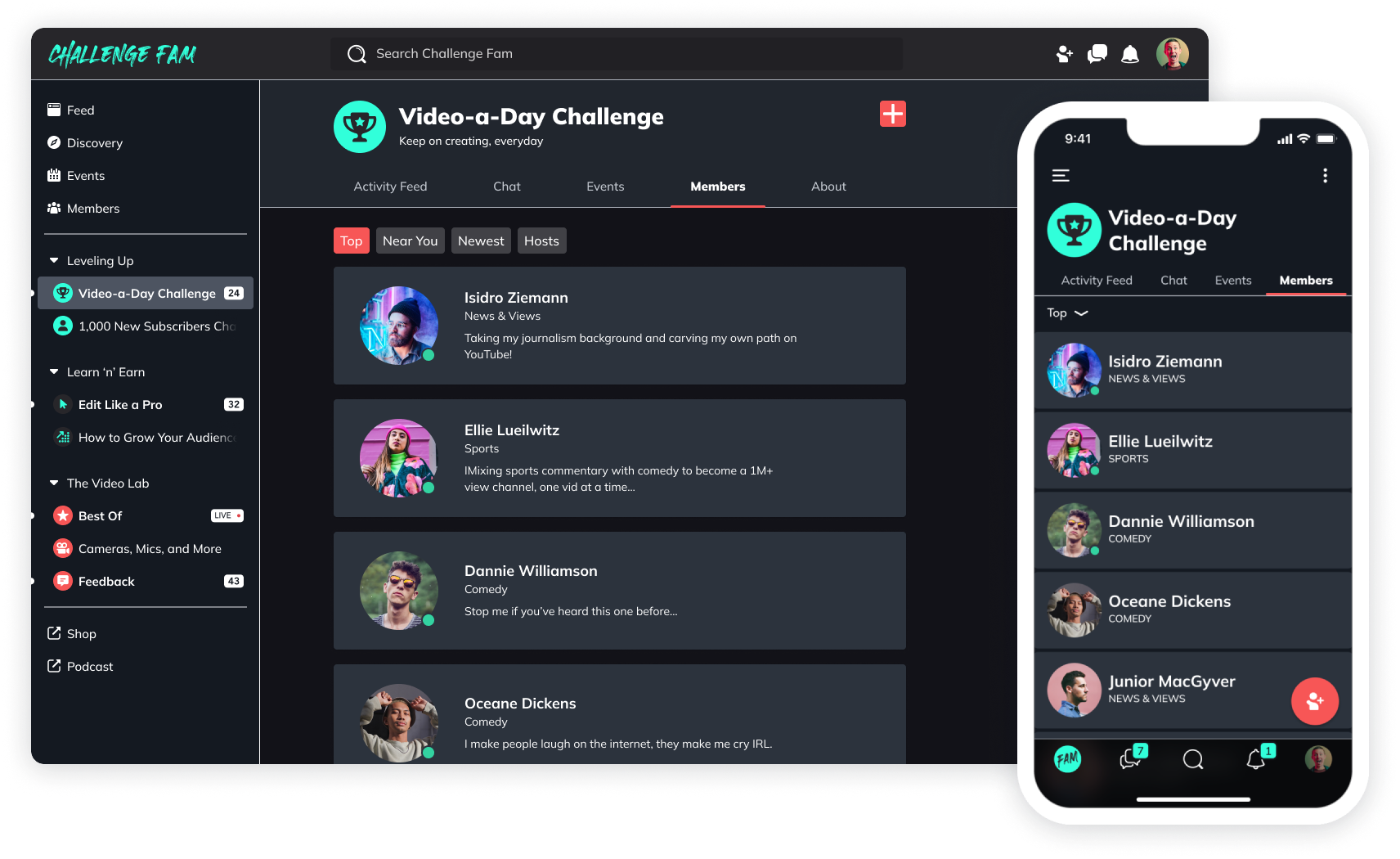
9. Sell more
As you grow, one of the easiest ways to grow your business is to offer more to existing customers. For example, we find that our Mighty Networks that sell monthly memberships also do the best in selling additional products and services to their members.
In sales terms, we call it the upsell.
Often your existing customers will want more from you, especially if you've taken the time to build great products and services.
So can you give them something else? Can you offer a related product? Or an upsell into coaching or consulting? Or an additional event to go with a membership?
Take a look at your existing digital business. There are probably some phenomenal opportunities already in your email list that you just need to uncover.
In communities, we call this the community flywheel. It's a different way of doing business, in which your brand creates community (instead of funnels) that keeps your superusers excited, engaged, and coming back for more.
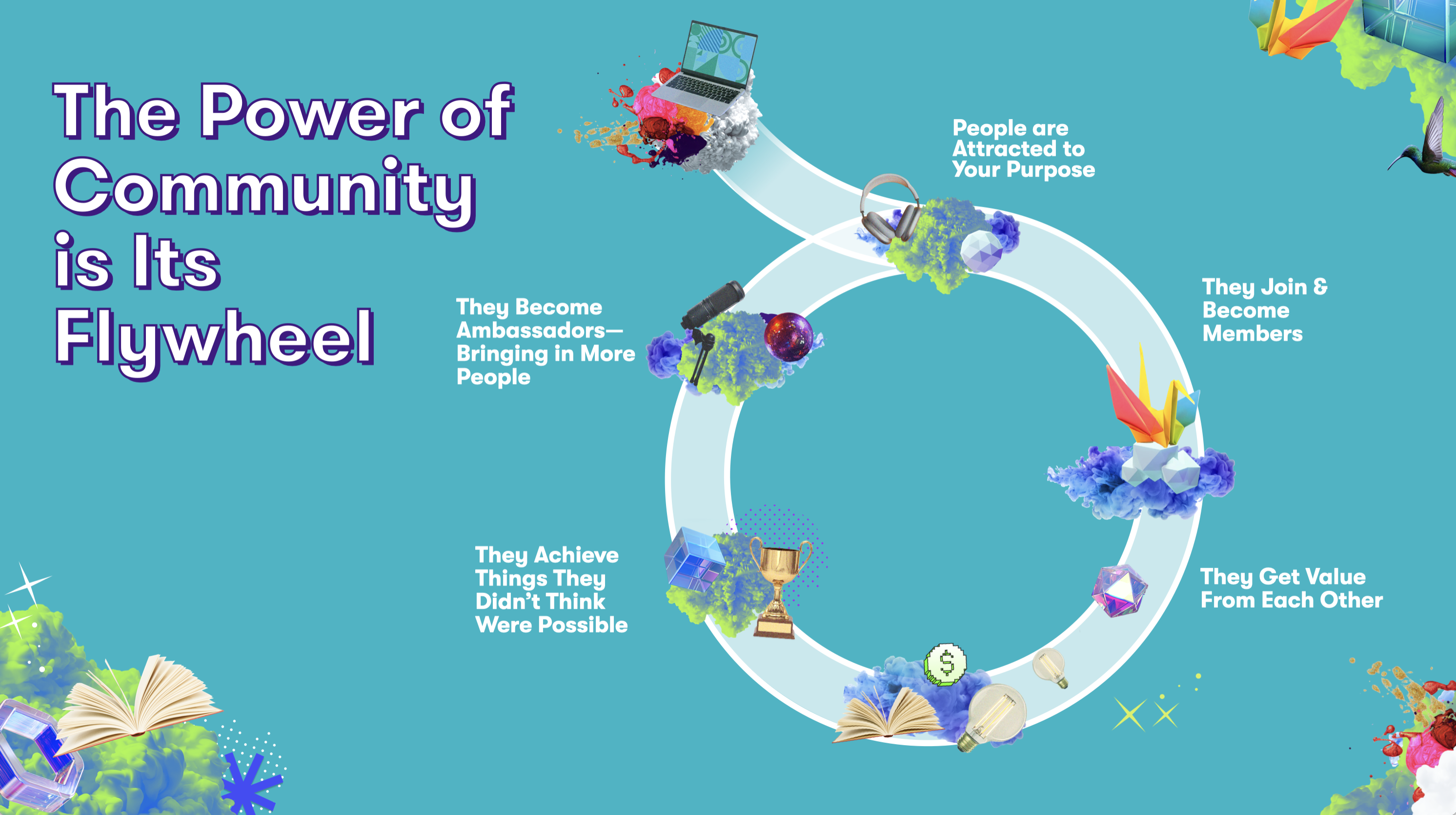
Ready to start?
It's hard to talk about a big category like digital business in one post, but hopefully this has given you a good introduction to starting your own business! Digital businesses are all different, but a lot of the concepts are universal.
If you are building a business that brings together any combination of content, community, courses, events, and commerce, come build with Mighty! We are an all-in-one digital business platform for memberships that let you do things like livestream, teach live in pre-recorded courses, host discussions, host live events, and chat and message with your members.
Many of our clients have built 6, 7, and even 8-figure membership and subscription businesses. You can monetize in 135 different currencies, and you collect payment on the platform.
Ready to start building your community?
Start a free 14-day trial to explore Mighty—no credit card required.
More like this
Join Mighty Community
Learn the principles of Community Design™ (and see them in action) alongside thousands of creators and entrepreneurs. It's free to join!

Online Courses
Creating a Course
Teaching a Course
Course Platforms
Selling a Course
Communities & Memberships
Community Platforms
Managing a Community
Building a Community
Growing a Community
Monetizing a Community
Content Creation
Creators & Entrepreneurs
Monetization
Content Creation
Starting a Business
Website Builders
Creating & Managing a Website
Events
Event Platforms
Hosting & Marketing Events
Branded Apps
Creating a Mobile App
Coaching Apps
Community Apps
Coaching
Mastermind Groups
Starting a Coaching Business
Coaching Platforms
Filter by Category
Online Courses
Communities & Memberships
Creators & Entrepreneurs
Events
Branded Apps
Coaching
Start your free trial
14 Days. No Credit Card Required.





















